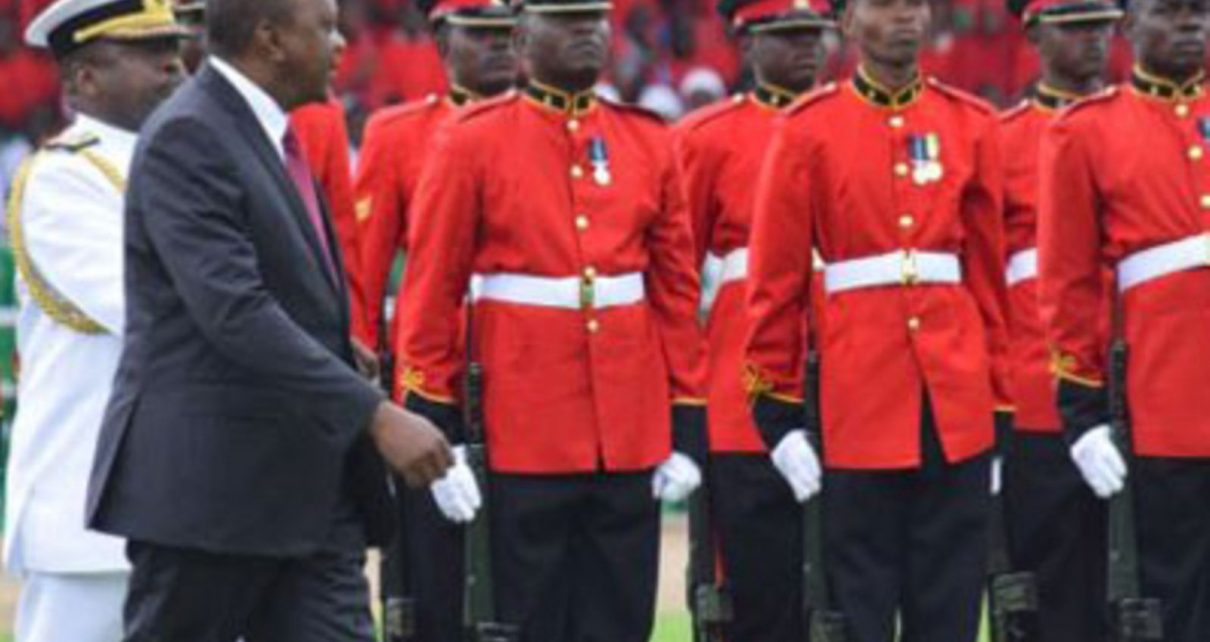This mid-year celebration has lost relevance, should be merged with Jamhuri Day!
By Sekou Toure Otondi
PhD Political Science Candidate, UoN
Kenya’s national holidays have gone through interesting twists and turns since the country attained its independence in 1963, and became a republic in 1964.
For a long time there was very little clarity about what constituted a national holiday and why these were created. They seemed to be named at the whim of presidents or, at the very least, with presidents in mind. The now-abolished Moi Day was created to celebrate the presidency of Kenya’s longest serving head of state, President Daniel arap Moi.
The same was true of Kenyatta Day, which was initially set aside to remember the Kenyans who fought for independence but quickly became a celebration of Kenya’s first president, Jomo Kenyatta.
Kenya has three national holidays and Madaraka Day should be scrapped off the calendar
In 2010 a new constitution was promulgated. This brought a fresh and well defined meaning to national holidays. Article 8 of the 2010 Constitution recognizes Kenya’s three national days as Madaraka Day (June 1), Mashujaa Day (October 20) and Jamhuri Day (December 12).
On Madaraka Day, Kenyans celebrate the moment in history when the country was granted internal self-rule by the British colonialists. On Jamhuri Day, they mark the day they gained complete independence.
However, the constitution also gives Parliament leeway to enact legislation prescribing other national holidays and to make provision for their observance. On that authority, members of the National Assembly took Moi Day off the calendar. Kenyatta Day was renamed Mashujaa Day and redefined as a day for celebrating Kenyan heroes and heroines.
Fifty four years down the line, Kenya has outgrown its baby politics
Madaraka Day remained untouched. But over the years this mid-year celebration has seemed to lose its relevance. There are several reasons for this, and it’s time to think critically about the holiday’s continued presence on Kenya’s national calendar. Perhaps, the time has come to do away with it.
Fifty four years down the line, Kenya has outgrown its baby politics. It has transitioned from the ethos of nationalism to a governance system that thrive on ethnicity. The patriotic and uniting fervor witnessed during the struggle for freedom in the early days of independence has waned significantly.
Kenya’s first president Jomo Kenyatta tended to place tribe before country, the second followed his nyayo
Many have argued that the splintering of the Kenyan collective along tribal lines was caused by the failure of the independent country’s founding fathers to instill a strong sense of social cohesion around the concept of a Kenyan identity.
In his book, Kenya: Between Hope and Despair, Daniel Branch traces the problem of ethnicity to Kenya’s first president Jomo Kenyatta. He tended to place tribe before country. As a result, ethnic arrangements have taken precedence over nationalism. This has been witnessed by past patterns of ethnic violence across the country.
Kenya’s collective disdain for nationalism has not been helped by the fact that ordinary people have little faith in government to address issues like the rising cost of living, unemployment and corruption.
There is little difference between the June celebration and Jamhuri Day
In my view as a political scientist, national holidays, such as Madaraka Day, are merely an extension of the State’s platform to outline its achievements – whether those are real or imagined.
The second reason why Madaraka Day could become irrelevant is that there is little difference between the June celebration and Jamhuri Day. Madaraka Day is celebrated on the day Kenya attained internal self-rule; Jamhuri Day marks the day that Kenya became fully independent. Both days, six months apart, oscillate around Kenya’s self-determination.
Money is another concern. Celebrating national holidays costs the government taxpayers money. For that reason alone, it would make sense to merge Madaraka with Jamhuri Day. In any event, the two holidays fall just six months apart and Jamhuri Day is the more significant national holiday.
Many Kenyans are comfortable with national holidays because they double up as public holidays
Taking a national holiday off the calendar to save money would not be unprecedented. Just across the border, Tanzania’s late President John Magufuli cancelled national day celebrations to save public money.
In Kenya, Parliament has the power and opportunity to look critically at the country’s national holidays with a view to either merging or scrapping all together those that don’t match the realities and aspirations of Kenyans.
Many Kenyans are comfortable with the idea of national holidays because they double up as public holidays, bringing with them the rare opportunity for rest and restoration. But it’s questionable to suggest that Madaraka Day has any real historical significance in modern Kenya.
Editor’s Note: This article was first published at theconversation.com as ‘It’s time for Kenyans to stop celebrating Madaraka Day’.

